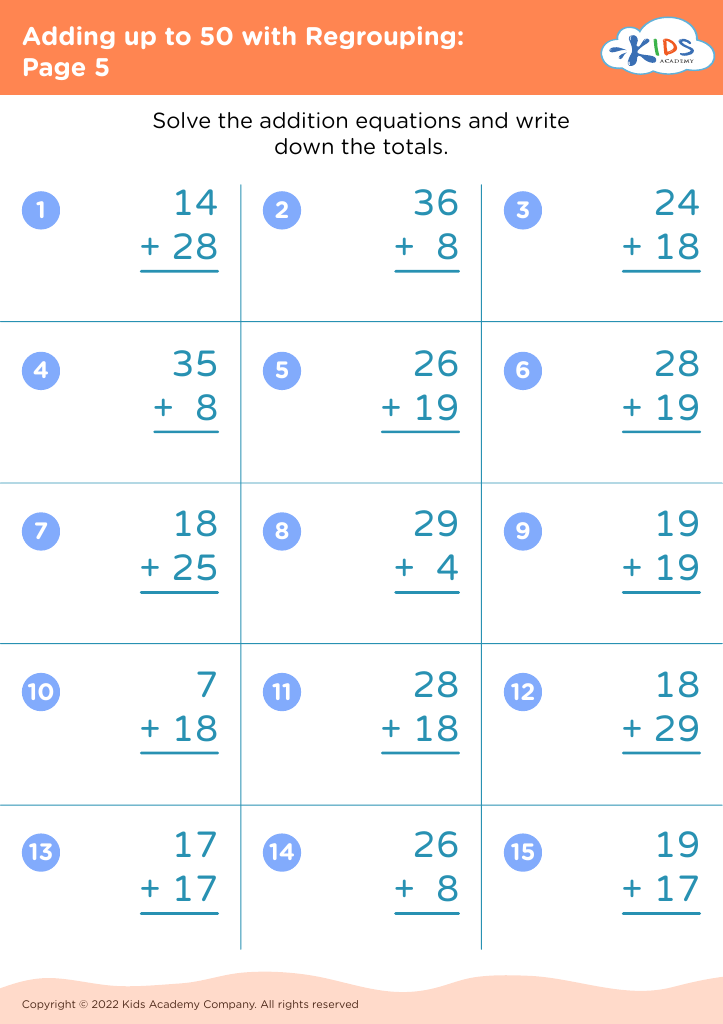Fraction comparison Adding up to 50 Worksheets for Ages 4-8
7 filtered results
-
From - To
Discover engaging "Fraction Comparison Adding Up to 50" worksheets designed specifically for children aged 4 to 8. These interactive activities help young learners understand the concept of fractions through fun, colorful images and relatable scenarios. By comparing fractions while adding up to 50, children will strengthen their mathematical reasoning and develop essential problem-solving skills. Each worksheet is crafted to promote critical thinking and enhance number comprehension in a playful, stress-free manner. Ideal for home or classroom use, our resources support early math education, ensuring kids gain confidence in their abilities while enjoying the learning process. Download yours today!
Fraction comparison and adding up to 50 are essential concepts for children ages 4-8, as they build foundational skills in mathematics that are crucial for their academic development. Understanding fractions helps children grasp the concept of parts and wholes, and fosters critical thinking. At this age, students start to encounter fractions in real-life situations, like sharing snacks or measuring ingredients for a fun activity, which makes learning both relevant and engaging.
Moreover, adding up to 50 teaches children about number sense and place value. This limits frustration with more complex arithmetic in later grades. When children compare fractions, they're also developing their ability to recognize patterns and relationships between numbers, reinforcing their overall numeric fluency.
For educators and parents, these skills are vital as they lay the groundwork for more advanced math topics, such as ratios and proportions, that they will encounter as they progress in their education. Encouraging children to explore these concepts during discussions or activities cultivates a positive attitude toward math, developing confidence and curiosity. When children understand these early mathematical concepts, they are much better equipped to tackle more intricate problems in the future, leading to continued interest and success in the subject.
























